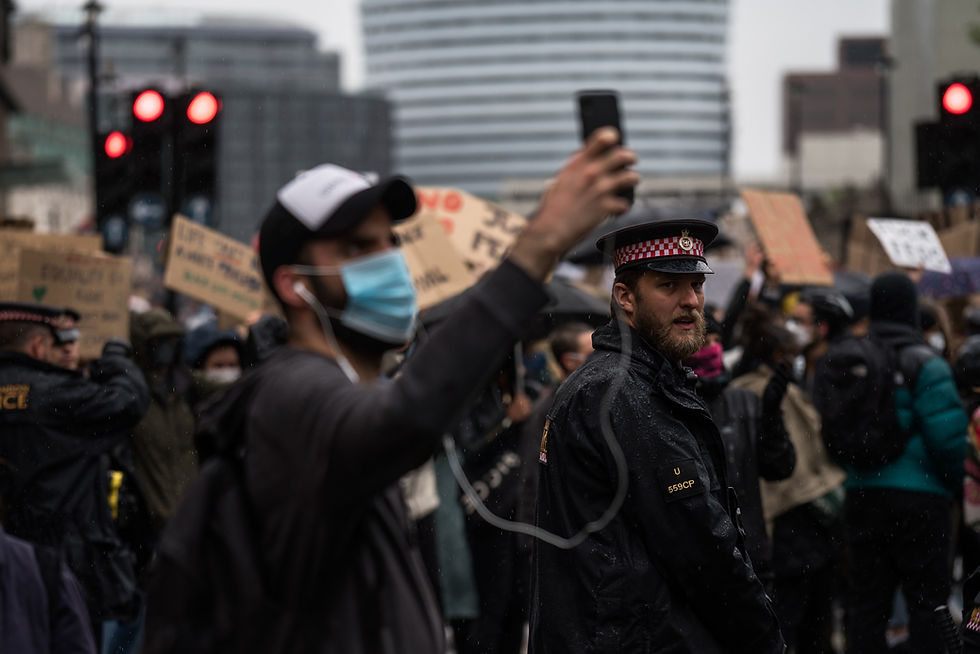How to go marching without getting the boot
- ediebowles
- Sep 23, 2021
- 4 min read
Updated: Jun 25

Animal Rights Activism and Employment Law
As believers in animal rights and welfare, it is almost expected of us to engage in activism and proselytising.
As the case of Jordi Casamitjana shows: the cost can be high when our beliefs compel us to act.
So, whilst we are used to making sacrifices for animals; here guest writer and barrister Alan Robertshaw would like to examine the potential consequences in the workplace when we express our beliefs; and whether employment law offers any degree of protection for activist employees.
Politics or morality?
A complicating factor is that animal rights activism can be both a political stance and a philosophical belief. Whilst English law contains protections for the holding and expression of both political and philosophical views; there is more protection for the latter. There is, however, often a degree of overlap.
Activity within work
Generally, employers have an absolute right to control or restrict conduct in the workplace. This could involve prohibitions on discussion about politics or beliefs; and/or the wearing of clothing with slogans or items related to religion or belief. Such restraint though has to be justifiable and proportionate. Different considerations might apply to staff dealing with customers to those working behind the scenes.
Employers have to be consistent, though. Ethical veganism, and respect for animal life, are almost certainly 'protected beliefs' within the meaning of the Equality Act. That is, they are afforded the same respect as religious beliefs. So, if an employer allows the wearing of religious iconography; then they would have to allow vegans the same. That means if your colleague can wear a crucifix, then arguably you can wear the Vegan symbol.
Activity outside work
All employment contracts are deemed to contain an implied term of 'trust and confidence' between employees and employers. That term has been held to include a duty on the employee not to bring his employer into 'disrepute'; which has been interpreted to cover conduct outside of work.
There is of course an obvious tension here between that duty and the employee’s rights to freedom of expression and assembly.
An employer, whose clients include members of minority ethnic groups, may well be justified in prohibiting employees' membership of violent far right organisations; just as a legitimate public safety concern.
However, the mere fact that potential customers may not approve of particular views, or even conduct, will generally not be grounds for dismissal or even prohibition of expressing those views or engaging in activism raising from them, where those views fall into the category of protected belief.
So, for example, the employment tribunal held that a dismissal of a hunt saboteur was unlawful, even though customers were boycotting his employer because of his activities. The tribunal held that 'respect for the sanctity of animal life' was a protected characteristic under the Equality Act, and that included acting on this belief.
It should be noted that the usual 'qualifying period' of twelve months before an unfair dismissal claim can be brought does not apply in such circumstances. An employee could bring a claim at any stage; and even prior to employment if they were rejected for a job because of their beliefs.
‘Unlawful’ activity
We can see then that holding views related to animal rights is protected; as is expression of those views, which would include taking part in demonstrations and marches. But what if our views end up being expresses through unlawful activity; whether that be civil disobedience, or beyond?
The first consideration is whether we even need to tell our employers.
Obviously, if we appear on the news being dragged into a police van, they may find out that way; but is there an obligation to inform them otherwise?
That depends on the nature of your employment contract. There may well be a term that imposes a requirement to notify your employer of any convictions, or even merely being charged.
Just being charged, or even convicted, though, is not determinative. In order to take action over such things, employers must show a compelling justification. A conviction for assault, for example may be more significant for a teacher than a lighthouse keeper; and minor public order convictions, such as for a refusal to comply with a condition on a march, might not be relevant at all.
It should also be noted that a conditional discharge, which is a common disposal for such offences, isn’t technically a conviction, but I will cover more about ‘criminal’ penalties in a future article.
Conclusion
Obviously, this is a complex topic. Cases will be fact specific and different considerations will apply in every one. Hopefully, however, this article has highlighted factors to be aware of. Such an article, though, can never be a substitute for proper legal advice.
Of course, the employment contract doesn’t just work one way. What if your employer’s actions amount to criminal, or merely just disreputable conduct? Can you bring that to people’s attention? To find out, tune in next time when we will be taking a look at ‘whistleblowing’ and the Public Interest Disclosure Act.
Getting advice
This post is not legal advice and should not be relied on as such. If you require legal advice on animal protection laws, please contact info@advocates-for-animals.com.


